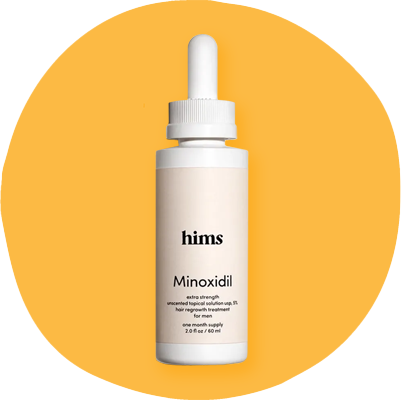Scientists discover how morning sun "recharges" your cellular batteries.
͏ ͏ ͏ ͏ ͏ ͏ ͏ ͏ ͏ ͏ ͏ ͏ ͏ ͏ ͏ ͏ ͏ ͏ ͏ ͏ ͏ ͏ ͏ ͏ ͏ ͏ ͏ ͏ ͏ ͏ ͏ ͏ ͏ ͏ ͏ ͏ ͏
| | | Sponsored by | |  | | | | |
| | | | | Feeling the sun warm your body certainly feels good, but is it doing you good? For years, I assumed sunbathing was mainly about vitamin D, melanin, and mood, but recent research reveals something unexpected: certain wavelengths of sunlight actually pass through our entire bodies, boosting cellular function along the way. And it can improve your eyesight. | | How does that work? Read on! | | | | | | | Let's look into it,
Tim Snaith
Newsletter Editor, Healthline |  | | Written by Tim Snaith
August 1, 2025 • 4 min read | | | | | | | |
| |  | | | | Sunshine is doing much more than making vitamin D | | Back in 2021, we reported on how scientists discovered that just 3 minutes of deep red light exposure once per week improved people's color vision by 17% for up to a week. The light treatment worked by "recharging" mitochondria (think of them as your cells' batteries), but only when given in the morning. As one scientist explained, mitochondria "are probably busy doing other things in the afternoon." | | Now, new research from the same University College London team takes this further. They found that invisible heat rays from the sun are able to travel completely through your body, reaching internal organs and improving cellular energy along the way. | | When people were exposed to these rays for 15 minutes, their vision improved 24 hours later, and these improvements happened even when their eyes were wrapped in aluminum foil during exposure. This showed that the rays create whole-body effects, improving vision by enhancing mitochondria throughout the body rather than directly hitting eye cells. Wild. | | The scientists actually photographed light coming out of people's chests after passing through their bodies, which means we're transparent, at least to certain types of light. The wavelengths that do it best are around 830 to 860 nanometers, aka "near infrared light." These aren't the rays that make vitamin D or the ones we can see, but the heat we feel in sunlight. | | What about clothing? | | Researchers also tested whether clothing blocks these benefits. The invisible heat rays easily passed through all six layers people wore. So you don't even need to sunbathe to get benefits. A clothed walk outside should also deliver therapeutic rays where they're needed. | | Does artificial light work in the same way? | | While energy-efficient, LED lighting only emits rays up to about 650 nanometers, which means it lacks the beneficial heat rays of natural sunlight. Traditional bulbs and firelight contained these longer wavelengths, but modern LEDs create what researchers call a "restricted spectrum." | | The best time of day to benefit | | Morning sunlight, richest in beneficial rays, may be particularly valuable for this reason. Exposure to it supports healthy sleep-wake cycles, and even brief exposures to full-spectrum sunlight provide benefits we're just beginning to understand. | | | | | | | | | Sponsored by | |  | | | | Let it grow | | | | | | |  | | Hims Minoxidil for Men | | Topical minoxidil is a popular hair loss treatment approved by the Food and Drug Administration (FDA). Hims offers an extra-strength version that you can apply to your head twice a day to try and stimulate hair growth. Keep in mind that minoxidil can potentially lead to an itchy, dry, scaly, irritated, or burning scalp, so be sure to consult your doctor before using it. | | | Every product we recommend has gone through either Healthline's or Optum Now's vetting processes. If you buy through links on this page, we may receive a small commission or other tangible benefit. Healthline has sole editorial control over this newsletter. Potential uses for the products listed here are not health claims made by the manufacturers. Healthline and Optum Now are owned by RVO Health. | | | | | | | | | | | | | | | | | How did you feel about this newsletter? | | | | Email wellnesswire@healthline.com with comments related to this newsletter or topics you'd like to see in future editions. The newsletter editors read every message that lands in our inbox — yes, really! We look forward to hearing from you. | | | | | | | | | | | | | | Until next time, |  | Take care of yourself, and we'll see
you again soon! | | |  | | |  | | This edition was powered by | | my garden's sun trap. | | | | | | | | View in browser
Did a friend send you this email? Subscribe here.
To see all newsletters, click here.
Privacy | Unsubscribe
We may feature your messages to our inbox within our content. Please do not provide any personal identifiable information. Replies may be edited for length and clarity. For more, see our Privacy Policy.
Our website services, content, and products are for informational purposes only. Healthline does not provide medical advice, diagnosis, or treatment and should not be used as a substitute for medical advice from a healthcare professional. Healthline encourages you to make any treatment decisions with your healthcare professional.
Every product we recommend has gone through either Healthline's or Optum Now's vetting processes. If you buy through links on this page, we may receive a small commission or other tangible benefit. Healthline has sole editorial control over this newsletter. Potential uses for the products listed here are not health claims made by the manufacturers. Healthline and Optum Now are owned by RVO Health.
© 2025 RVO Health
1101 Red Ventures Drive
Fort Mill, SC 29707 | | | | |   | | |
Plus, take our survey 📝 and weigh in on our newsletter ...

-
Also: 'Don’t think I’m touching a man anytime soon.’ Post-election, I asked where you're at when it comes to sex, desire, and your b...
-
Inside: Gift ideas that fill the world with some good this holiday season. ...
-
Parents face new rules on childhood shots, while COVID vaccine access becomes more limited. ...
| |
Nema komentara:
Objavi komentar